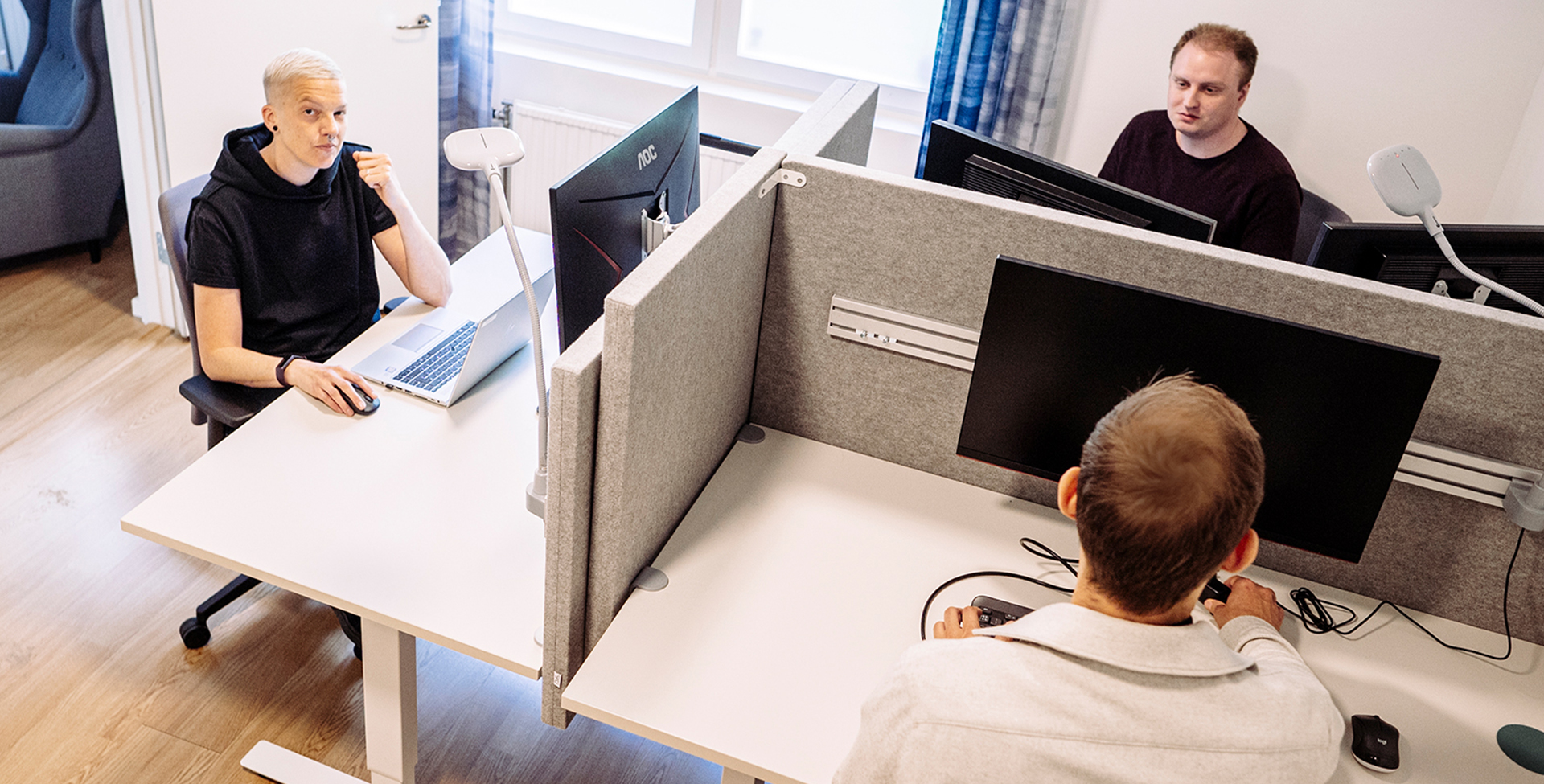Diversity is a success factor for Scania
At Scania, diversity is a strength to be reckoned with. This can be seen not least in Jakob Robertsson’s team, which is responsible for the development of Scania’s website. When they needed a tester, Unicus’ unique skills were an exciting opportunity.
– We have a very mixed team from six different continents, Jakob explains. Our cultural diversity has really been a success factor. Therefore, it felt exciting to see if Unicus’ competencies could add a new dimension. It has worked fantastically well!
At Unicus, all consultants have autism. For example, it can mean strong analytical ability and perseverance in repetitive processes, but also challenges in social contexts. The competence from Unicus in the form of eye for details and the ability to tackle challenges in new ways has strengthened the entire team.
–It could not have been better, says Jakob with a smile. Both in the team and in the form of deliveries. Our consultant from Unicus had never worked as a tester before, but has delivered in a fantastic way.
The richness of detail at Unicus konsult has led to more discussions about how to improve different work processes. It has affected the whole team positively. Today, they often talk about the importance of feedback and how they can work to grow together as a team. Jakob also notes that there are many things that have interacted very nicely:
–Being understanding and kind are good starting values for success.
Unicus’ goal for all consultants is to grow with the role. You often start as a brand new in your field, to grow over time with the assignment. Unicus consultant quickly became part of the team, which Jakob believes is due to the work culture:
–We have a strong culture in taking responsibility. One result of this is that we have control over who does what. It also makes it easier to get into the team.
The first thing I notice when meeting Jacob is his humility. The team works a lot with what is called servant leadership. Instead of leading with the whole hand, the model focuses on letting everyone in the team take responsibility for driving the work forward. Each person is responsible for solving the task in the best way. The leader is supportive instead of authoritarian. At the same time, it places higher demands on the employee himself to be active in the change work.
I ask Jakob how it works when you join the team as a newcomer. He says that they work with buddies, someone you should be able to lean on casually. With warmth, he talks about his team, which has grown rapidly in recent years.
–When you join the team, it almost feels more like a family than a team basically, says Jakob. This is such a safe place to lean on. It’s a little fascinating that we manage to keep that feeling even though we do not meet much.
An open culture where everyone feels safe is important for building sustainable teams. Seeing diversity as a strength is another piece of the puzzle. Jakob strives to always look for diversity into the team. He always returns to the question of how he can add new dimensions to the team.
–The exploration will be a starting point in our work, Jakob explains. Many of those who apply for jobs with us are curious about the diversity aspect. So it is not a disadvantage to recruit to a team with mixed backgrounds, but rather an advantage.
The culture and work model also means that it is always okay to solve things in your own way. It creates room for individual development and more responsibility over time. Now it’s soon time for Unicus’ consultant to introduce another tester to the team:
–If you have good people around you, it is easier to navigate new tasks. Try to remove all barriers – all forms of authority must be removed in order to succeed, Jakob concludes.
